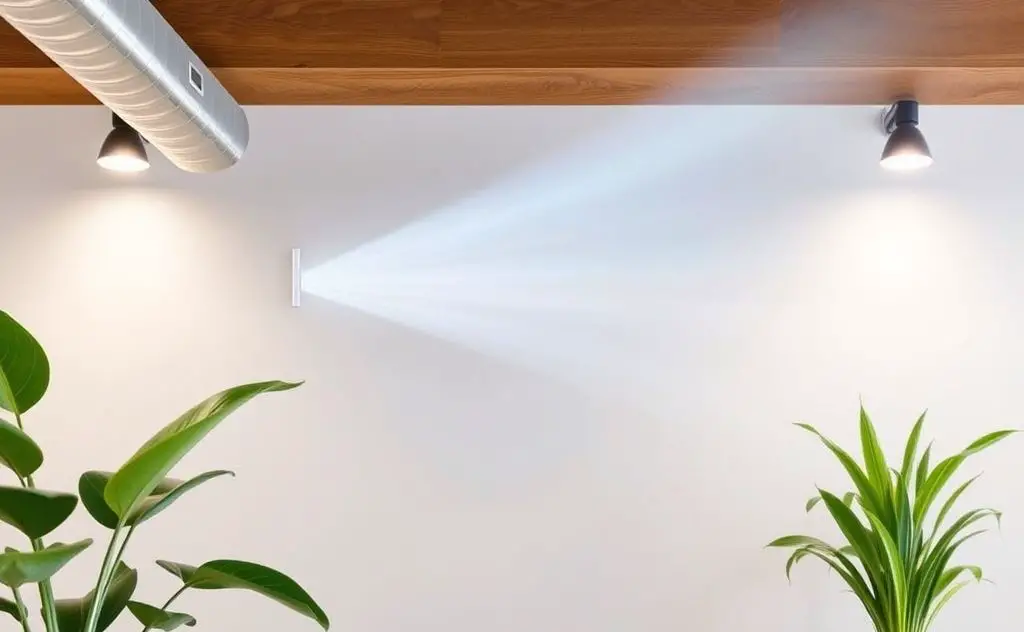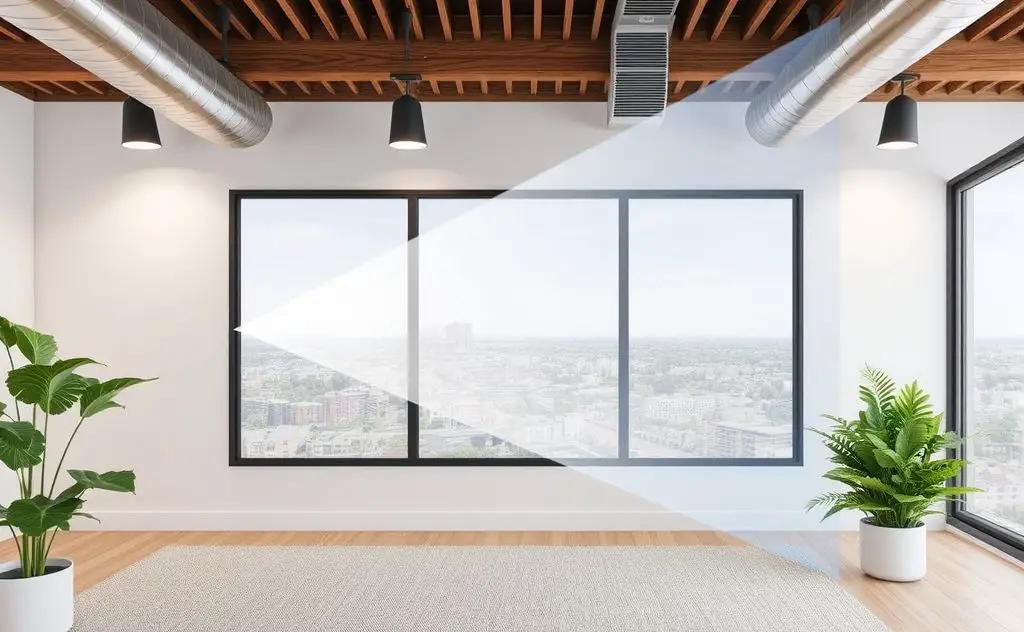The connection between air purification and HVAC airflow lies in how purifiers enhance indoor air quality by efficiently filtering contaminants as air circulates through the system.
Air purification and HVAC airflow are deeply interconnected. Proper air filtration improves indoor air quality while maintaining optimal system performance. Understanding this relationship helps homeowners create healthier living spaces without sacrificing energy efficiency.

The Science Behind Air Filtration and HVAC Performance
HVAC systems circulate air throughout your home while filtering particles through various media. The filtration process impacts both air quality and system efficiency in several key ways:
MERV Ratings Explained
Minimum Efficiency Reporting Value (MERV) ratings determine a filter’s effectiveness at capturing particles of different sizes:
| MERV Rating | Particle Size Efficiency | Typical Applications |
|---|---|---|
| 1-4 | 10+ microns | Basic residential filters |
| 5-8 | 3-10 microns | Better residential filters |
| 9-12 | 1-3 microns | Superior residential/small commercial |
| 13-16 | 0.3-1 microns | Hospital/laboratory grade |
Higher MERV filters capture smaller particles but create more airflow resistance. This balance is crucial for HVAC efficiency. For most homes, MERV 8-11 filters offer the best compromise between filtration and airflow.

Optimizing Airflow While Maintaining Filtration
Proper airflow ensures your HVAC system operates efficiently while effectively filtering air. Several factors influence this balance:
Filter Installation and Sealing
Even small gaps around filters dramatically reduce effectiveness. A 10mm gap can turn a MERV 15 filter into a MERV 8 equivalent. Always ensure tight seals when installing filters.
System Design Considerations
Older HVAC systems may struggle with high-MERV filters. If your system can’t maintain proper airflow with better filters, consider these alternatives:
- Upgrade to a more powerful blower motor
- Install a separate air purifier for targeted cleaning
- Use pleated filters for better airflow
DIY Air Purification Solutions That Work
Research shows that simple, high-airflow solutions can outperform expensive HEPA purifiers in some situations:
The Corsi-Rosenthal Box
This DIY air cleaner combines a box fan with MERV 11-13 filters. Studies show it:
- Moves 700+ CFM of air (vs. 300 CFM for premium HEPA units)
- Reduces particles more effectively than $900 purifiers
- Costs under $100 to build
The secret lies in multiple air passes through the filters. As TexAir Filters research demonstrates, higher airflow through good filters creates superior results.
HVAC System Maintenance for Optimal Performance
Regular maintenance ensures your system maintains proper airflow while filtering effectively:
Key Maintenance Tasks
- Change filters every 1-3 months
- Clean ductwork every 3-5 years
- Inspect blower motors annually
- Check for air leaks in ducts
- Clean evaporator and condenser coils
According to EPA guidelines, combining proper HVAC maintenance with targeted air purification creates the healthiest indoor environment.
Smart Integration of Air Purification
Modern solutions allow seamless integration of air purification with existing HVAC systems:
Whole-House Purification Options
- UV-C light systems that kill microorganisms
- Electronic air cleaners with washable plates
- Media air cleaners with deeper filter beds
- Activated carbon filters for gas removal
For targeted purification, consider adding a smart air purifier in frequently used rooms. These units can sync with your HVAC system for coordinated operation.
